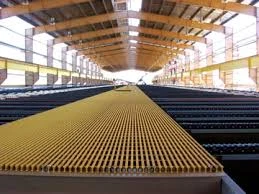
-
 Afrikaans
Afrikaans -
 Albanian
Albanian -
 Amharic
Amharic -
 Arabic
Arabic -
 Armenian
Armenian -
 Azerbaijani
Azerbaijani -
 Basque
Basque -
 Belarusian
Belarusian -
 Bengali
Bengali -
 Bosnian
Bosnian -
 Bulgarian
Bulgarian -
 Catalan
Catalan -
 Cebuano
Cebuano -
 China
China -
 China (Taiwan)
China (Taiwan) -
 Corsican
Corsican -
 Croatian
Croatian -
 Czech
Czech -
 Danish
Danish -
 Dutch
Dutch -
 English
English -
 Esperanto
Esperanto -
 Estonian
Estonian -
 Finnish
Finnish -
 French
French -
 Frisian
Frisian -
 Galician
Galician -
 Georgian
Georgian -
 German
German -
 Greek
Greek -
 Gujarati
Gujarati -
 Haitian Creole
Haitian Creole -
 hausa
hausa -
 hawaiian
hawaiian -
 Hebrew
Hebrew -
 Hindi
Hindi -
 Miao
Miao -
 Hungarian
Hungarian -
 Icelandic
Icelandic -
 igbo
igbo -
 Indonesian
Indonesian -
 irish
irish -
 Italian
Italian -
 Japanese
Japanese -
 Javanese
Javanese -
 Kannada
Kannada -
 kazakh
kazakh -
 Khmer
Khmer -
 Rwandese
Rwandese -
 Korean
Korean -
 Kurdish
Kurdish -
 Kyrgyz
Kyrgyz -
 Lao
Lao -
 Latin
Latin -
 Latvian
Latvian -
 Lithuanian
Lithuanian -
 Luxembourgish
Luxembourgish -
 Macedonian
Macedonian -
 Malgashi
Malgashi -
 Malay
Malay -
 Malayalam
Malayalam -
 Maltese
Maltese -
 Maori
Maori -
 Marathi
Marathi -
 Mongolian
Mongolian -
 Myanmar
Myanmar -
 Nepali
Nepali -
 Norwegian
Norwegian -
 Norwegian
Norwegian -
 Occitan
Occitan -
 Pashto
Pashto -
 Persian
Persian -
 Polish
Polish -
 Portuguese
Portuguese -
 Punjabi
Punjabi -
 Romanian
Romanian -
 Russian
Russian -
 Samoan
Samoan -
 Scottish Gaelic
Scottish Gaelic -
 Serbian
Serbian -
 Sesotho
Sesotho -
 Shona
Shona -
 Sindhi
Sindhi -
 Sinhala
Sinhala -
 Slovak
Slovak -
 Slovenian
Slovenian -
 Somali
Somali -
 Spanish
Spanish -
 Sundanese
Sundanese -
 Swahili
Swahili -
 Swedish
Swedish -
 Tagalog
Tagalog -
 Tajik
Tajik -
 Tamil
Tamil -
 Tatar
Tatar -
 Telugu
Telugu -
 Thai
Thai -
 Turkish
Turkish -
 Turkmen
Turkmen -
 Ukrainian
Ukrainian -
 Urdu
Urdu -
 Uighur
Uighur -
 Uzbek
Uzbek -
 Vietnamese
Vietnamese -
 Welsh
Welsh -
 Bantu
Bantu -
 Yiddish
Yiddish -
 Yoruba
Yoruba -
 Zulu
Zulu
frp desalination pipes and fittings for efficient water treatment ...
The Role of FRP Desalination Pipes and Fittings in Efficient Water Treatment
In the quest to provide clean and potable water for an ever-growing global population, innovative technologies and materials have emerged to enhance water treatment processes. One such advancement is the use of Fiber Reinforced Plastic (FRP) for desalination pipes and fittings. FRP materials have gained popularity in various industries due to their unique properties, which make them highly suitable for the demanding environments encountered in water treatment. This article will explore the benefits and significance of FRP desalination pipes and fittings in achieving efficient water treatment solutions.
Understanding Fiber Reinforced Plastic (FRP)
FRP is a composite material made from a polymer matrix reinforced with fibers, typically glass or carbon. This combination results in a lightweight yet exceptionally strong material that exhibits excellent resistance to corrosion and chemical degradation, making it ideal for applications in the water and wastewater industry. Unlike traditional materials such as steel or concrete, FRP does not rust or corrode when exposed to saltwater or other harsh environments, ensuring longevity and reducing maintenance costs.
Advantages of FRP Desalination Pipes
1. Corrosion Resistance One of the primary challenges in desalination processes is the harsh environment created by saline water. FRP pipes and fittings are inherently resistant to corrosion, ensuring that they can withstand exposure to seawater and brine over extended periods. This characteristic significantly extends the lifespan of the pipes and reduces the need for frequent replacements.
2. Lightweight and Ease of Installation The lightweight nature of FRP materials allows for easy handling and installation, which is essential in remote or challenging locations often associated with desalination plants. This property not only simplifies logistics but also minimizes labor costs and installation time.
3. High Strength-to-Weight Ratio FRP offers an excellent strength-to-weight ratio, providing robust durability while keeping the overall system lightweight. This allows for the design of efficient and compact desalination facilities without compromising structural integrity.
frp desalination pipes and fittings for efficient water treatment ...

4. Thermal and Electrical Insulation FRP is a poor conductor of heat and electricity, making it an ideal choice for environments where temperature fluctuations and electrical safety are concerns. This property helps to maintain the thermal stability of the water being treated and protects the infrastructure from potential electrical hazards.
5. Customization and Flexibility FRP can be tailored to meet specific project requirements, including custom sizes and shapes for pipes and fittings. This flexibility allows engineers to design systems that optimize the flow of water and enhance treatment efficiency.
The Role of Fittings in Water Treatment
Fittings play a crucial role in the overall efficiency of desalination systems. FRP fittings, such as elbows, tees, and flanges, contribute to maintaining smooth water flow while minimizing pressure drops. The smooth inner surface of FRP fittings reduces friction, which can lead to energy savings in pumping systems. Furthermore, the precision manufacturing processes employed in producing FRP fittings ensures high-quality connections that minimize leak risks and enhance system reliability.
Future of FRP in Water Treatment
As the demand for clean water continues to rise, the desalination industry is likely to expand significantly. FRP materials will play an increasingly vital role in this growth, offering innovative solutions that enhance the efficiency and sustainability of water treatment operations. Ongoing research and development in FRP technology hold the promise for even more advanced materials that will meet the evolving challenges of the water treatment sector.
Conclusion
In summary, FRP desalination pipes and fittings are revolutionizing the water treatment industry by providing durable, corrosion-resistant, and lightweight options that improve system efficiency. Their unique properties make them an ideal solution for the challenging conditions of desalination processes. As societies strive to secure reliable access to clean water, the importance of adopting advanced materials like FRP will only continue to grow, paving the way for more efficient and sustainable water treatment solutions in the future.









